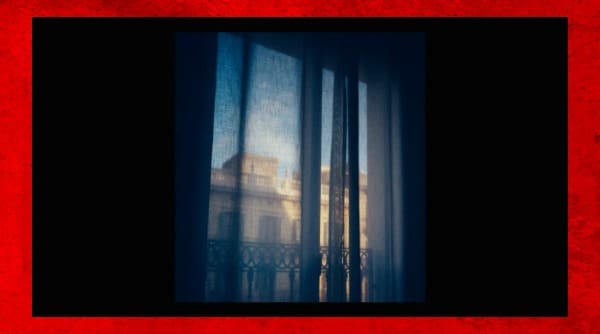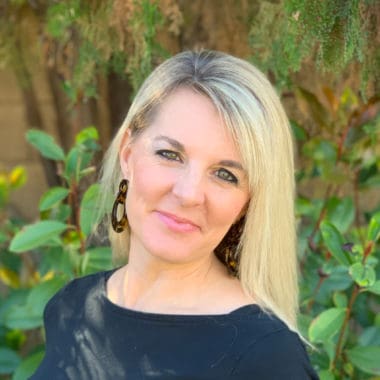This Present Paradise
A Series of Reflections on St. Elizabeth of the Trinity
(Read part 9 here)
The sound of the bells of the Carmelite convent, just around the corner from Elizabeth’s house, must have seemed a constant calling reminder of the vow of virginity she had made as a child and the whisper of “Carmel” with which the Lord replied. Her desire for this life with Jesus grew greater each day. Elizabeth finally, around the time she turned sixteen, got up the courage to approach her mother about entering the convent.
We can image her vulnerability at that moment. All her precious dreams, cherished secretly, now held out in trembling hope to someone who could receive them gently or crush them abruptly. Decisively, the answer came. “NO.” She must not think of it, at least not for years. And not only that, she was no longer allowed to attend mass or visit with the nuns there. Her heart twisted in pain at this awful answer—to be cut off completely from not only the dream but every contact with the cloister.
And so began her exile. “Why do you make me languish?” She moaned in a private poem to Jesus. She put up a good front because she had mastered herself enough not to reveal the storm inside (see here) but privately her pain was raw. She wrestled between two worlds, called to one but confined to the other. Peace was as far away as the promised land and the sea showed no sign of parting.
Many of us can relate to the struggle of doors closing us off from what we genuinely believe to be God’s will. We are ready to rush into careers, parenthood, marriages, moves, missions—our hearts bursting with the desire to serve Him in great ways, and God whispers, “wait.” It’s tempting to stomp our spiritual foot and demand, “Don’t you need me? I gave you my life!” After a time we realize that yes, He has accepted our lives. But He also wants our wills. That means giving back to Him what matters most. And this is a greater, interior crucifixion.
St. Gianna Molla, who surrendered missionary dreams for motherhood, had this to say: “What is a vocation? It is a gift from God and therefore comes from God. If then it is a gift from God, it is up to us to do all in our power to know God’s will. We must go along that way, if God wills it, not forcing the door; when God wills it, how God wills it.”
A friend of mine confided in me recently of her struggle living between vocations. She had discerned after some time in the convent that religious life was not her calling, but marriage had not materialized yet. As one decade unfolded into another, she ached for fulfillment but found only a long stretch of seemingly inexplicable delay. I looked at her hands, clutched in her lap, and said the one thing that came to mind: “Waiting is a kind of suffering.” I think this empty time is an early spring when life is pressing on the soil from below but cannot yet break out. It is a time to be available but not employed. It is to be the day-laborer who has not been called into the field. It is necessary, and it is hard.
And so this waiting, this suffering—this time of testing would become arguably the most important in Elizabeth’s life, a precious period when God’s wisdom began to be manifest and she began to understand the beauty and the greater good of God’s will. She had the virtue of obedience and knew that God’s will was wrapped in her mother’s response. So she learned to die to her desires and come to a place of purifying surrender. She realized that the only thing in her power was loving His will in each moment as it came to her—and for now, that will was very clearly not in Carmel.
Later, her mother would become very sick, and Elizabeth had to resign herself to the possibility that she would never enter. As the oldest daughter, it would fall on her to care for her widowed mother as long as she was needed. This was the greatest test. In the end, she would not be asked to carry that particular cross. Still, she held out her hands for it, she turned around and bent over, ready to shoulder the heaviest burden she knew. She was still under the weight of God’s will–like St. Frances of Rome, who put her wishes for religious life aside when challenged by her confessor: “Are you crying because you want to do God’s will or because you want God to do your will?”
It was Jesus who was working in Elizabeth’s heart, challenging her: “Can you drink from the cup I am to drink?” (Matthew 20:22), the same Jesus who had taught her to pray, who teaches all of us to say: Our Father, Who art in Heaven, hallowed be thy name; thy Kingdom come, thy will be done on earth as it is in Heaven. The same Jesus who modeled for us what it meant to be fully surrendered to Love: “Father, if it be possible, let this cup pass from me; nevertheless, not as I will, but as you will.” (Matthew 26:39)
In another post on the power of the phrase “Thy will be done” I quoted Fulton Sheen:
To say and mean ‘Thy Will be done’ is to put an end to all complaining; for whatever the moment brings to us now bears the imprint of the Divine Will.
Elizabeth wrote another poem, and this time there were no questions: “May your will be done/And may it be blessed forever.” The very delay was not an obstacle to God’s plan. It was part of it. It would be the place of a deep encounter with Christ’s cross and an occasion of learning to both trust God and offering herself for others. It was a gift, and she was beginning to unwrap it.
Years later, while filling out the postulant’s questionnaire, she was asked, “What name would you like to have in heaven?” Her answer said it all: “Will of God.”
Take, Lord, and receive all my liberty,
my memory, my understanding,
and my entire will,
All I have and call my own.
You have given all to me.
To you, Lord, I return it.
Everything is yours; do with it what you will.
Give me only your love and your grace,
That is enough for me.
-Suscipe of St. Ignatius of Loyola
(Read part 11 here.)
Image courtesy of Unsplash.




